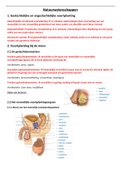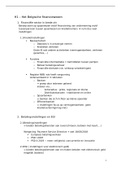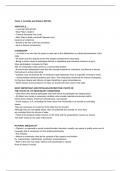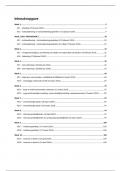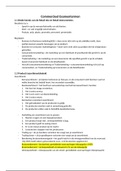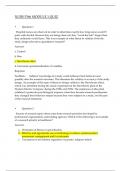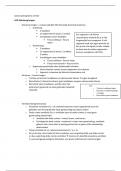Aleena Islam
I STARTED EARLY – TOOK MY DOG – Emily
Dickinson
Themes
Release, freedom, self-indulgence, thrill, relief, hedonism
Contextual overview
Throughout this poem, the speaker fantasies and imagines, symbolically
speaking, a sexual encounter with a man. Emily Dickinson wrote this
poem in the 19th century, a time of propriety and austerity and so the
speaker (presumably the poet herself) allows herself to indulge in this
fantasy with another man, as a form of relief and an antidote from the
restricted society that she was ensnared in. The majority of the poem
consists of the speaker’s encounter with the sea, a metaphor for the man,
but towards the end of the poem, as the sea recedes from the shore, the
speaker accepts that she must return to her reality of propriety.
Key features of language, form and structure
- The speaker states that she ‘visited the sea.’ Here, the sea is used as a
metaphor for the man that she will soon have a sexual encounter with.
The fact that she chooses not to address the man directly, and instead
through the interpretation of the sea, demonstrates that this is a
whimsical fantasy, and completely separate from reality.
- The speaker then describes that ‘the mermaids … came out to look at
me.’ The fact that mermaids, mythological creatures of immense beauty
and seduction come out for the sole purpose of observing the speaker,
suggests that the speaker desires to be the complete centre of attention
in her own fantasy, given that in her harsh reality it is doubtful that she
would have received a substantial amount of admiration and attention.
This idea is reinforced by the emphatic prohibition of the pronoun,
‘me,’ again suggesting that the centre of attention is solely focused on the
speaker and no one else. The inclusion of falsified and mythological
creatures also supports the idea that this is a whimsical fantasy and not
reality.
- The speaker continues to personify the sea by giving it the human-like
quality of being able to presume. She sees the ocean as “presuming [her]
to be a mouse”. This suggests that she perceives herself to be minute
compared to the sea, and thus the man she is envisioning. This
description could remind the speaker of her normal persona, an
unobtrusive and reserved character who has never dared herself to
venture into any sexual desire prior to this poem.
- The third stanza commences with the phrase, ‘but no man moved me till
the tide.’ Here, the speaker reveals her own virginity. While she stands
looking at the sea, she sees it as a man whose hands are extended toward
her, and she admits that she has never known a man. The alliteration of,
‘man moved me,’ could have been used to create a dream-like tone and
I STARTED EARLY – TOOK MY DOG – Emily
Dickinson
Themes
Release, freedom, self-indulgence, thrill, relief, hedonism
Contextual overview
Throughout this poem, the speaker fantasies and imagines, symbolically
speaking, a sexual encounter with a man. Emily Dickinson wrote this
poem in the 19th century, a time of propriety and austerity and so the
speaker (presumably the poet herself) allows herself to indulge in this
fantasy with another man, as a form of relief and an antidote from the
restricted society that she was ensnared in. The majority of the poem
consists of the speaker’s encounter with the sea, a metaphor for the man,
but towards the end of the poem, as the sea recedes from the shore, the
speaker accepts that she must return to her reality of propriety.
Key features of language, form and structure
- The speaker states that she ‘visited the sea.’ Here, the sea is used as a
metaphor for the man that she will soon have a sexual encounter with.
The fact that she chooses not to address the man directly, and instead
through the interpretation of the sea, demonstrates that this is a
whimsical fantasy, and completely separate from reality.
- The speaker then describes that ‘the mermaids … came out to look at
me.’ The fact that mermaids, mythological creatures of immense beauty
and seduction come out for the sole purpose of observing the speaker,
suggests that the speaker desires to be the complete centre of attention
in her own fantasy, given that in her harsh reality it is doubtful that she
would have received a substantial amount of admiration and attention.
This idea is reinforced by the emphatic prohibition of the pronoun,
‘me,’ again suggesting that the centre of attention is solely focused on the
speaker and no one else. The inclusion of falsified and mythological
creatures also supports the idea that this is a whimsical fantasy and not
reality.
- The speaker continues to personify the sea by giving it the human-like
quality of being able to presume. She sees the ocean as “presuming [her]
to be a mouse”. This suggests that she perceives herself to be minute
compared to the sea, and thus the man she is envisioning. This
description could remind the speaker of her normal persona, an
unobtrusive and reserved character who has never dared herself to
venture into any sexual desire prior to this poem.
- The third stanza commences with the phrase, ‘but no man moved me till
the tide.’ Here, the speaker reveals her own virginity. While she stands
looking at the sea, she sees it as a man whose hands are extended toward
her, and she admits that she has never known a man. The alliteration of,
‘man moved me,’ could have been used to create a dream-like tone and

